Final
Deadline
April 16, 2026
Judging
Date
May 18, 2026
Winners
Announced
June 10, 2026
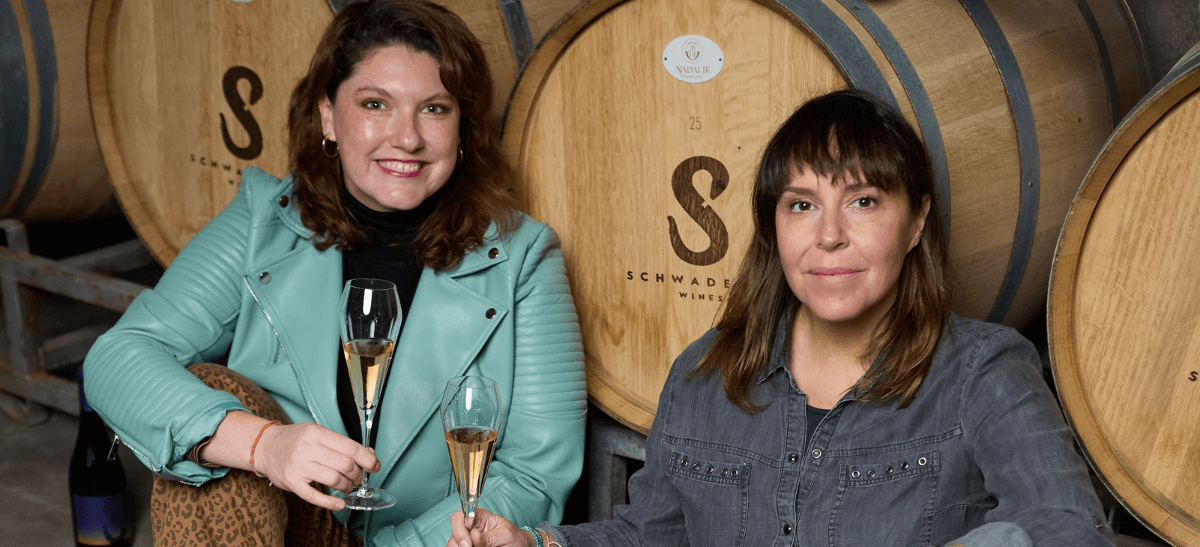
When a 0.2-hectare vineyard in Cauquenes yields a Riesling that captures the attention of sommeliers across the globe, something deeper is usually at play. For Mariane and Constanza Schwaderer, this year’s Sommeliers Choice Awards win, naming their 2022 Riesling the Wine of the Year – Chile, was a recognition of a standout vintage, of a philosophy rooted in precision, partnership, and a decades-long love for Riesling that bridges continents.
Born of a friendship with growers and a deep respect for ancestral vines in Maule, Schwaderer’s Riesling speaks in the language of place, quartz-rich soils, cool-climate purity, and harvests timed to a knife’s edge. But it also speaks to personality. The wine glows (literally, in label form) with the sisters’ hallmark: winemaking as personal expression, not just production.
Now distributing in New York and eyeing new states and international listings, Schwaderer Wines is building on this award not with grandiose campaigns, but with meaningful conversations, trade tastings, updated image libraries, and carefully nurtured importer relationships. Their approach is measured, considered, and unmistakably hands-on.
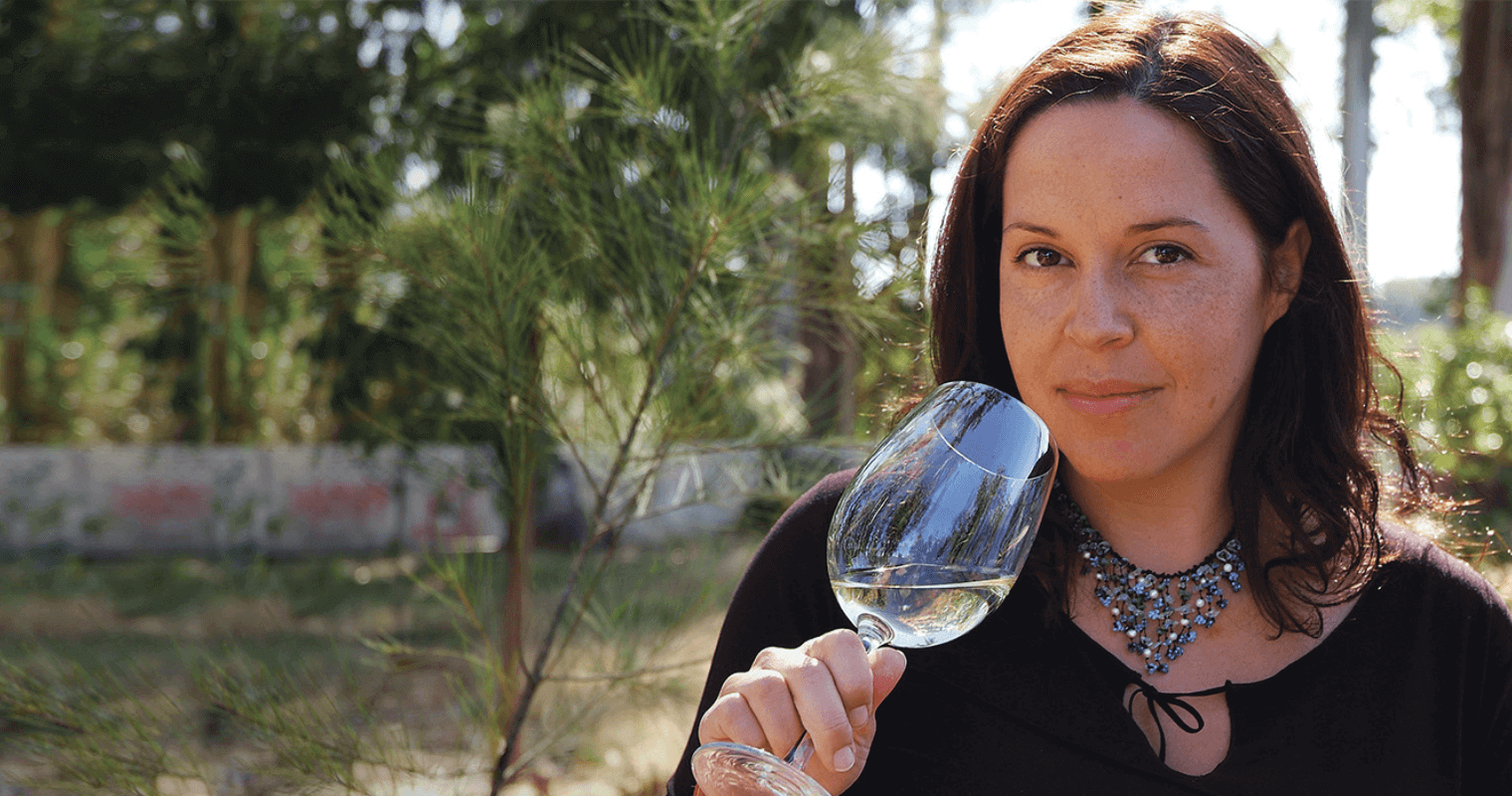
Image: Constanza Schwaderer, winemaker and Schwaderer Wines co-founder. Image courtesy of Naked Wines.
It’s a long story, rooted in our family history, beginning with our ancestors who emigrated from Germany to Chile. We believe our love for this variety runs in our blood. Mariane also lived in Berlin for seven years, and I visited her annually. During those trips, we would explore small wine shops and taste Rieslings from different regions and with varying profiles. We tasted a lot together.
Years later, an opportunity arose in Chile. A close winemaker friend, who worked with these grapes for a large winery, told me that beautiful Riesling clusters from one vineyard were being blended with other white varieties, simply because the volume was too small to vinify separately. He offered to connect me with the growers so we could hand-harvest just that small plot, since the rest of the vineyard was machine-harvested.
That’s how we began experimenting with this specific parcel in Cauquenes, a zone that’s not too warm and benefits from coastal influence. Only 0.2 hectares of the vineyard are planted to Riesling. We were thrilled with the results and have continued making it ever since.
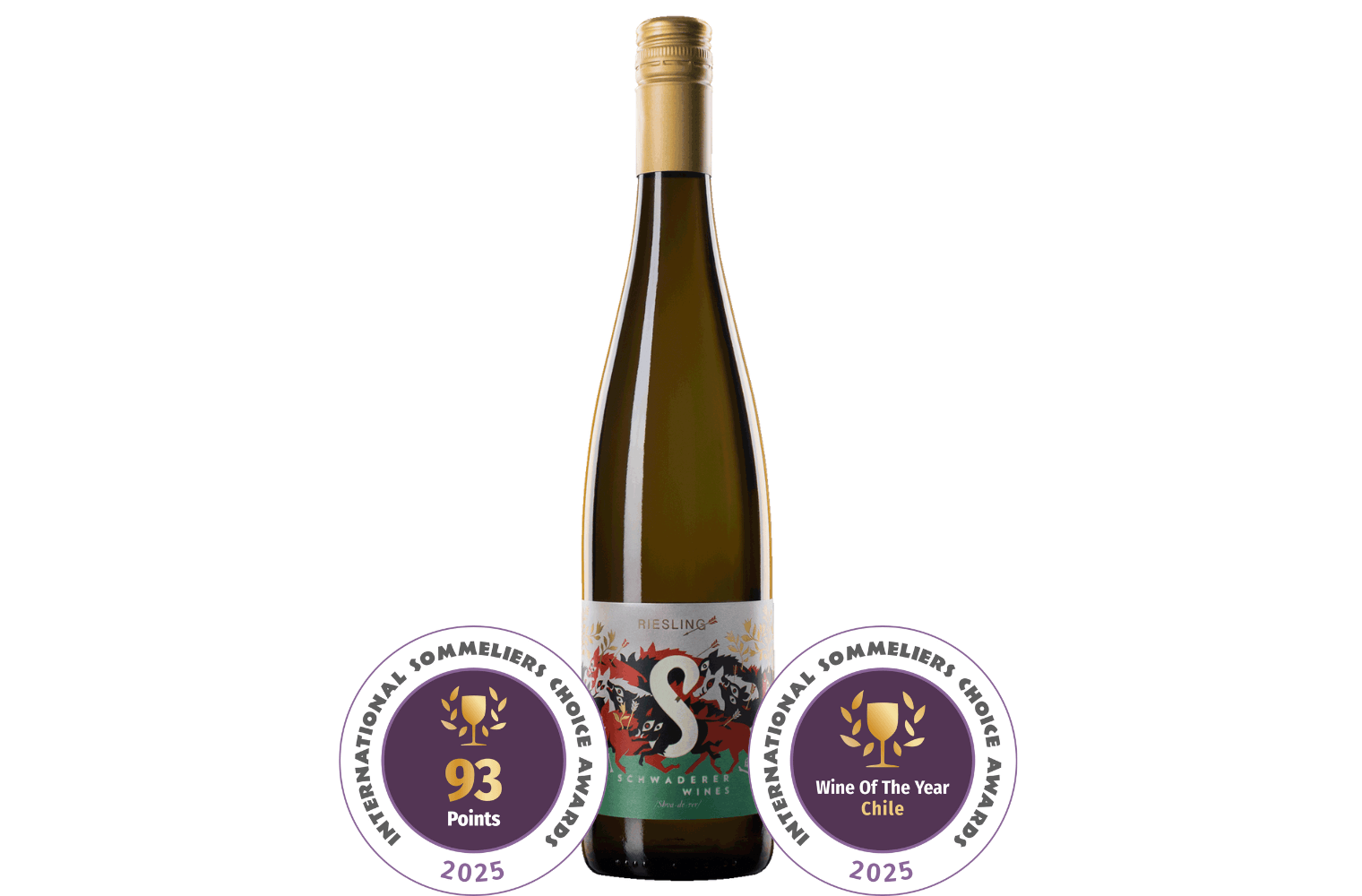
Image: Schwaderer Riesling 2022 - Wine Of The Year Chile at 2025 Sommeliers Choice Awards.
Especially in this cooler sector of Cauquenes, the combination of quartz-rich soils and lower temperatures provides ideal conditions for Riesling to express its true varietal character. The presence of quartz contributes a distinctive minerality and enhances the wine’s overall freshness.
The interplay of freshness, vibrant acidity, the cold climate, and the unique soil composition allows the variety to show its typicity in a precise and authentic way. Harvest timing is critical—picking at just the right moment, before the grapes become overripe, is essential to preserve fresh aromatics and achieve a balanced profile of alcohol and residual sugar.
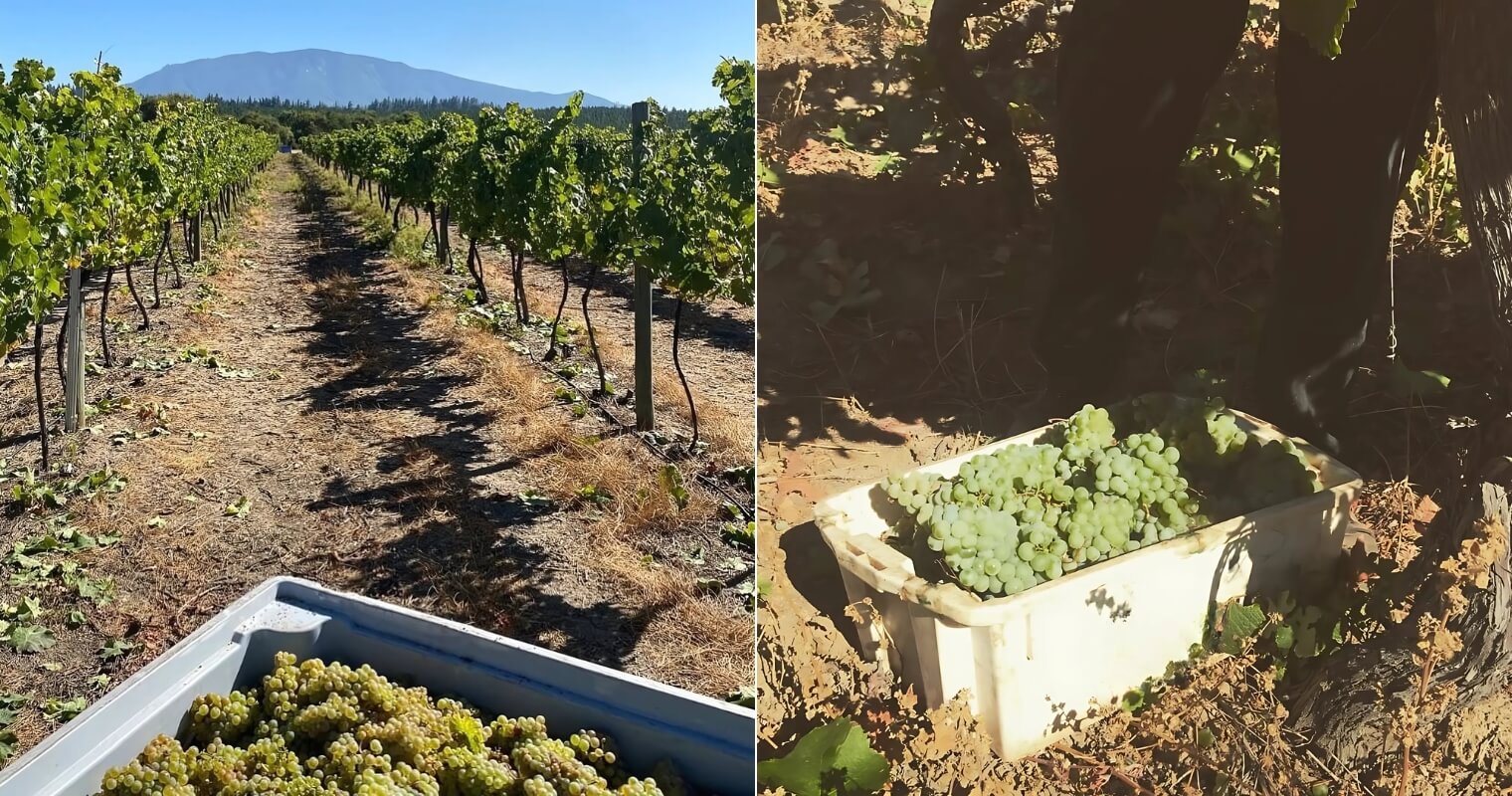
Image: Riesling vineyards. Source: Schwaderer Wines.
We work with small-scale, family growers who tend to old, ancestral vines. These vineyards are managed with a clean, low-intervention approach—no pesticides are used, and sulfur is applied as needed, which is permitted in organic viticulture.
Our philosophy is based on rational viticulture: applying only what is necessary, avoiding excess. Organic certification is extremely challenging and costly for small family growers, and for us as small producers, the winemaking side of certification is especially difficult and prohibitively expensive. A single inspection visit can go far beyond our budget.
Unfortunately, in our market, certified organic wines don’t always receive a premium price that compensates for the added cost of certification. So, we focus instead on responsible, sustainable practices—improving soil health, allowing other vegetation to coexist rather than eradicating all ground cover.
The climate in Cauquenes, with its dry summers and low humidity, naturally keeps the vines free of fungal pressure, which greatly reduces the need for chemical treatments.
Our brand identity is built on a true 50/50 partnership, where both of us feel equally represented. This marks a major shift from what we were doing before—not necessarily in terms of winemaking style, but profoundly in how we present ourselves as a company. We now have the freedom to express who we are—our humor, our personality—openly, without filters, through our labels and the way we communicate with the world.
At Schwaderer Wines, we established a fundamental rule: we only make wines we both genuinely love. Wines we’d want to open on a weekend with friends and family. We’ll never make wines just because they’re trendy. Our passion for each wine has to come through in every bottle—and in every label—showcasing intimate facets of our personalities. Sometimes subtle, sometimes bold, but always carrying a piece of our DNA. It’s a deeply personal process, often making us feel vulnerable.
This particular label speaks to a fear we both share: that feeling of being stuck in the face of fear or adversity. It’s a reminder that sometimes, we need to draw courage from our loved ones and push forward with determination, instead of staying frozen in place. That’s why this label glows in the dark: eyes and skulls light up to reveal those who stayed behind… and the energy it takes to move ahead.
We constantly consult each other and share opinions across many aspects of the business, but we've also chosen to take on distinct roles to work more efficiently—and to maintain an excellent relationship as friends, partners, and sisters.
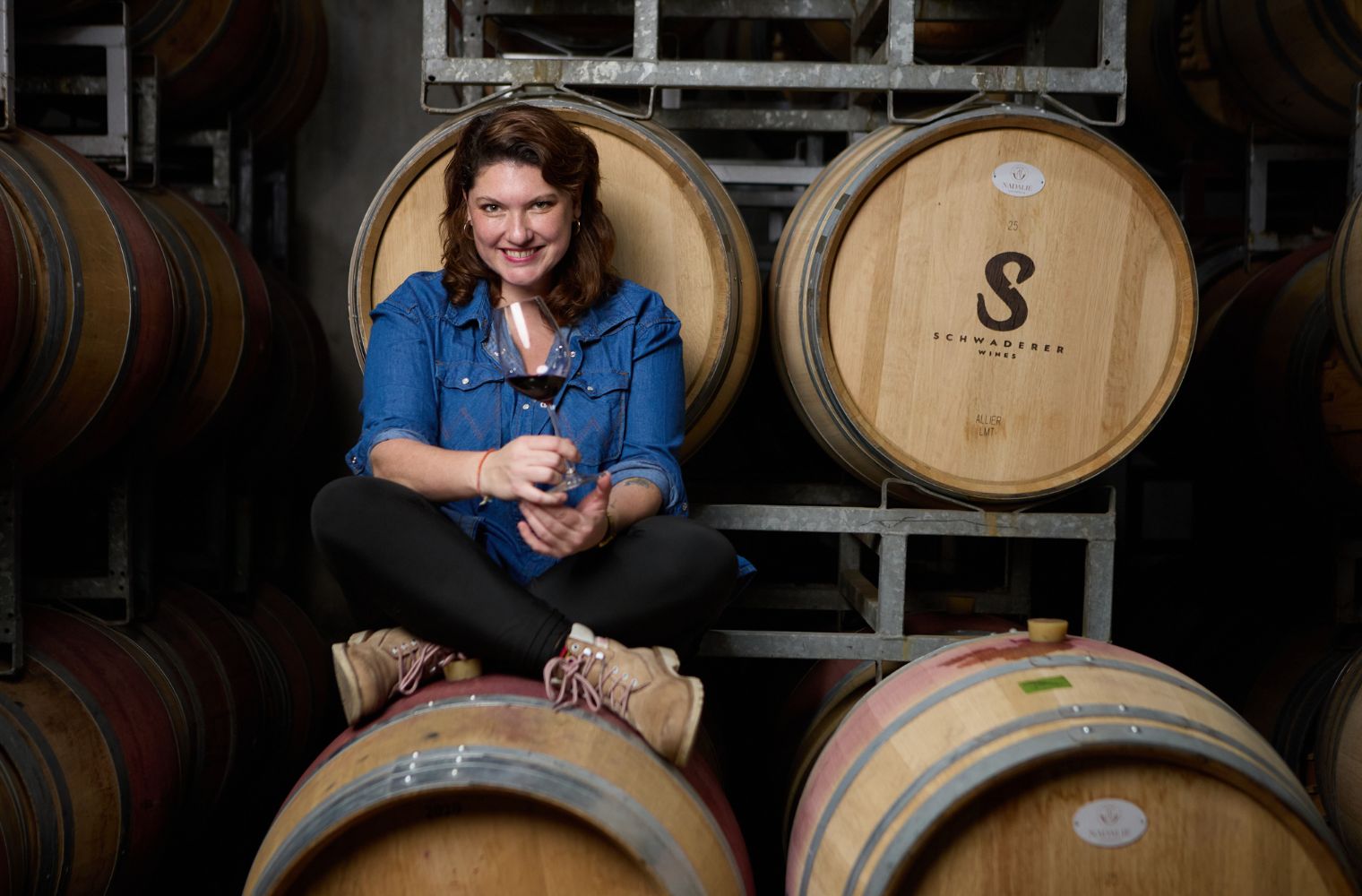
Image: Mariane Schwaderer.
Yes, we are currently distributing in the U.S., specifically in New York. However, we are actively working to expand our presence in other key states such as Illinois (Chicago), Oregon, California, and Florida (Miami). We know that growing in the U.S. market requires more than just sending samples—it takes a hands-on, long-term commitment. That’s why we’ve allocated resources for tastings, presentations, and direct engagement with industry professionals. As part of these efforts, we recently participated in the Sommelier Choice Awards, a valuable platform to increase visibility and connect with potential partners.
Beyond the U.S., we are exporting to Brazil, Canada, and the United Kingdom. These are well-established markets for us, where we have strong relationships with our importers and travel regularly to support them through in-person tastings, staff training, and events. Our focus is on building and maintaining meaningful partnerships with importers, key retailers, and on-premise accounts.
We’re always attentive and ready to support our U.S. importer with whatever they need to strengthen our presence in the on-trade channel. Whether it's updated technical sheets, tasting notes, promotional images, or content for social media, we respond quickly to ensure they have the right tools at the right time. A few months ago, we organized a photo shoot together at the winery to refresh our image library—this included new portraits of us as winemakers and updated promotional shots of our wines, so our importer can maintain a fresh and professional presentation in their communications.
We’re fully open to exploring new ideas to support by-the-glass programs, sommelier-driven events, and tastings. Building recognition in the on-trade is a long-term effort, and we’re committed to being proactive partners every step of the way.
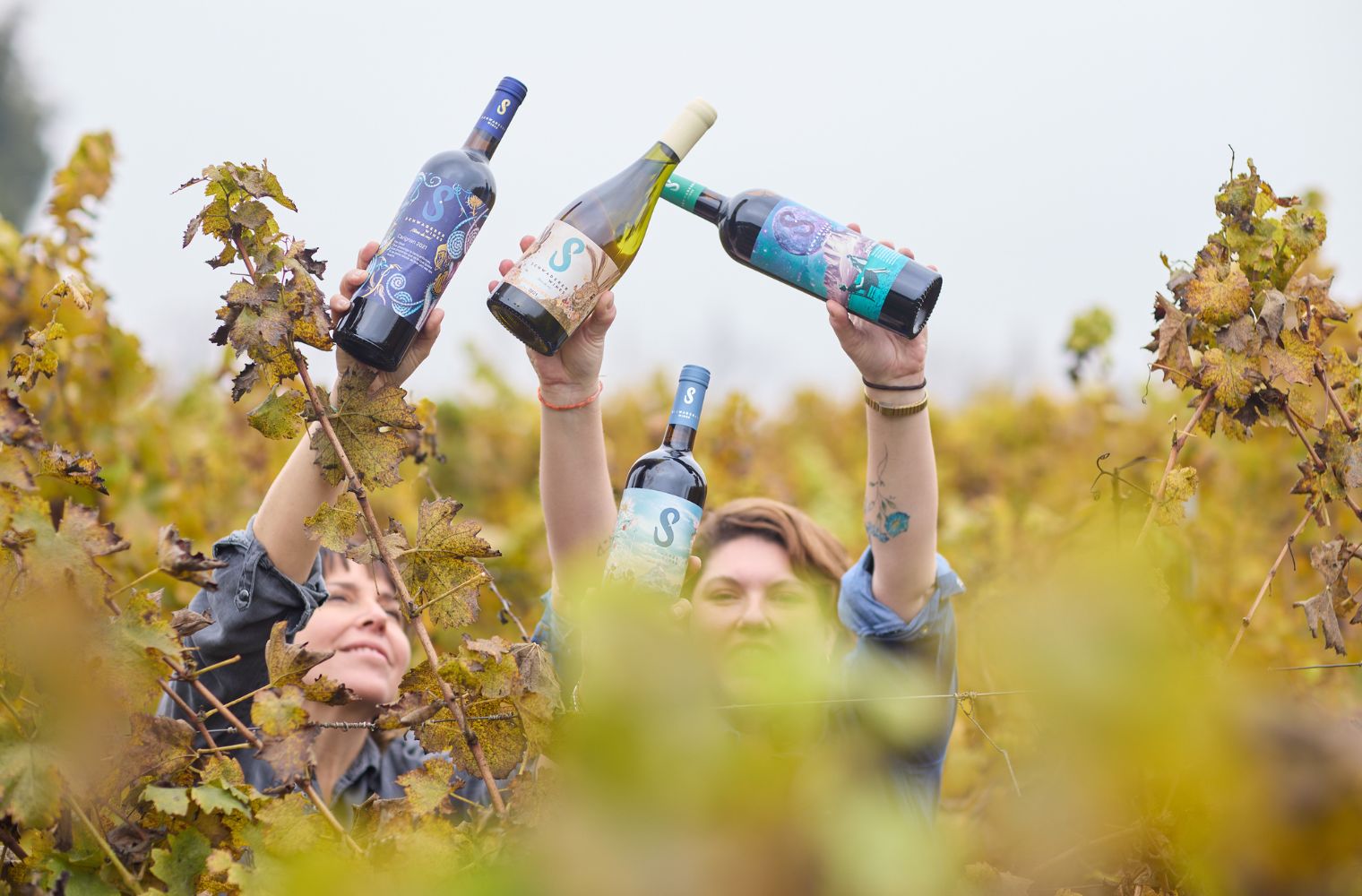
Image: Schwaderer Wines - Constanza and Mariane Schwaderer.
Our first step will be to incorporate the 'Wine of the Year – Chile' recognition into our technical sheets and company presentations, to ensure it’s reflected in all our communications with the trade and partners. We also plan to run periodic social media campaigns—especially on Instagram and LinkedIn—to highlight this milestone and generate more interest around the brand and the Riesling in particular.
That said, we’re very open to developing new campaigns that we haven’t yet imagined. We truly value feedback and creative input from professionals like you, and we’d be happy to hear any ideas or suggestions you might have for amplifying this recognition and tying it into our brand story.
Absolutely. We’re passionate about Albariño and have been developing this project for several years in partnership with small growers. We currently have Albariño planted and grafted in different areas of the Maule Valley, including vineyards in Cauquenes. These are still very small-scale productions—around 700 bottles per year—but we’re deeply committed to the variety and see great potential.
We’re actively considering expanding plantings in Cauquenes and other sub-regions of Maule that offer coastal influence and cool-climate conditions. This recent recognition of our Riesling further motivates us to continue investing in expressive, site-driven white wines.
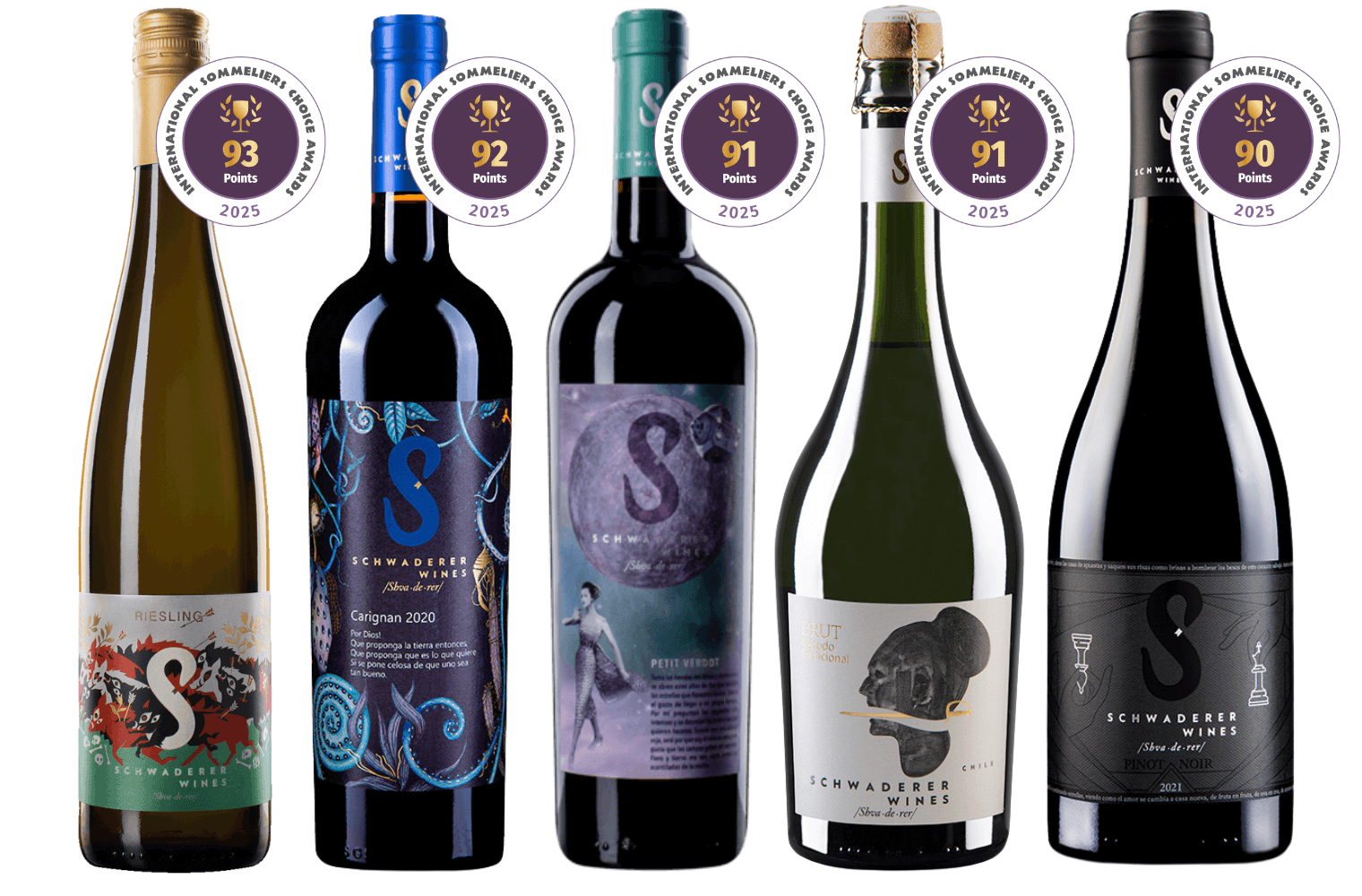
Image: Gold Winners from Schwaderer wines at the 2025 Sommeliers Choice Awards - (L-R) Schwaderer Riesling 2022, Schwaderer Carignan 2020, Schwaderer Petit Verdot 2021, Schwaderer Brut Semillón, Schwaderer Pinot Noir 2021.
For us, sustainability started with a strong focus on the social dimension—working hand-in-hand with small growers and building long-term, fair partnerships. Over time, we've expanded our approach to include environmental responsibility as well. We use lighter, more eco-friendly bottles to reduce our carbon footprint, and water management is a top priority. Together with our grape growers, we coordinate irrigation practices to ensure water is only used when strictly necessary, especially in regions where resources are limited. Sustainability for us is not a checkbox; it’s a continuous process of learning, improving, and acting responsibly.
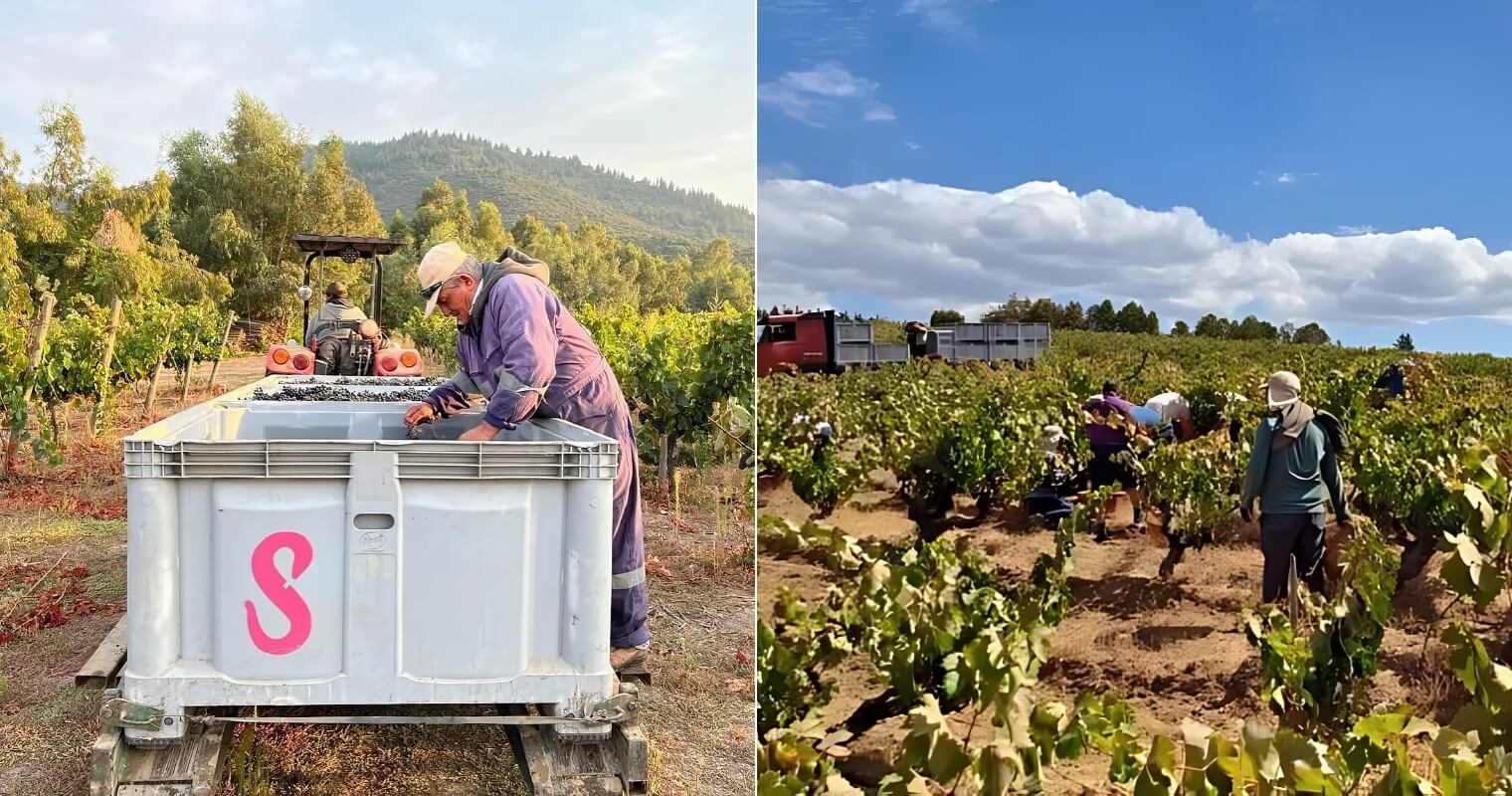
Image: Schwaderer wines - Harvesting Petit Verdot 2025.
Food pairing is something we absolutely love exploring. We’re true sybarites at heart, and we believe that a pairing can either elevate a wine or completely overshadow it. Naturally, we have a few personal favorites when it comes to our Riesling. One standout is Vietnamese summer roll, the fresh ingredients, usually shrimp, vegetables, and lots of herbs, complement the wine beautifully, enhancing its lightness and vibrant acidity.
As big seafood lovers, we’ve tried many pairings, but a few have stood out like these three. Chilean oysters, with their saline and slightly metallic notes, create a lovely contrast with the perfect acidity of the Riesling. Freshly sliced scallop sashimi is another elegant choice, clean, pure, and a perfect appetite opener that matches the slight sweetness of each other. And finally, one of our most comforting favorites, steamed mussels with a light beurre blanc sauce. It’s the kind of dish meant to be shared with family over long Sunday lunches and great conversation.
The recognition from the Sommeliers Choice Awards may accelerate Schwaderer’s visibility abroad, but it doesn’t alter the underlying ethos: staying small enough to care, and selective enough to matter. Whether through site-driven Albariño experiments or sustainable vineyard stewardship guided by growers’ needs, the Schwaderer sisters are building something lasting, on their own terms, one partnership and parcel at a time.
Their 2022 Riesling may have claimed the top prize for Chile, but it’s the intention behind the wine that lingers longer: precise, assured, and deeply human.
In conversation with Malvika Patel, Editor and VP, Beverage Trade Network
Also Read:
Sommeliers Choice Awards 2025: Herdade Paço do Conde Named Top Portuguese Winery
SCA 2025: Bodegas Murua’s Gran Reserva Named Best Tempranillo and Spain’s Top Wine
Aslina Chardonnay Named Wine of the Year, South Africa at Sommeliers Choice 2025
Enter your Wines now and get in front of top Sommeliers, Wine Directors, and On-Premise Wine Buyers of USA.
